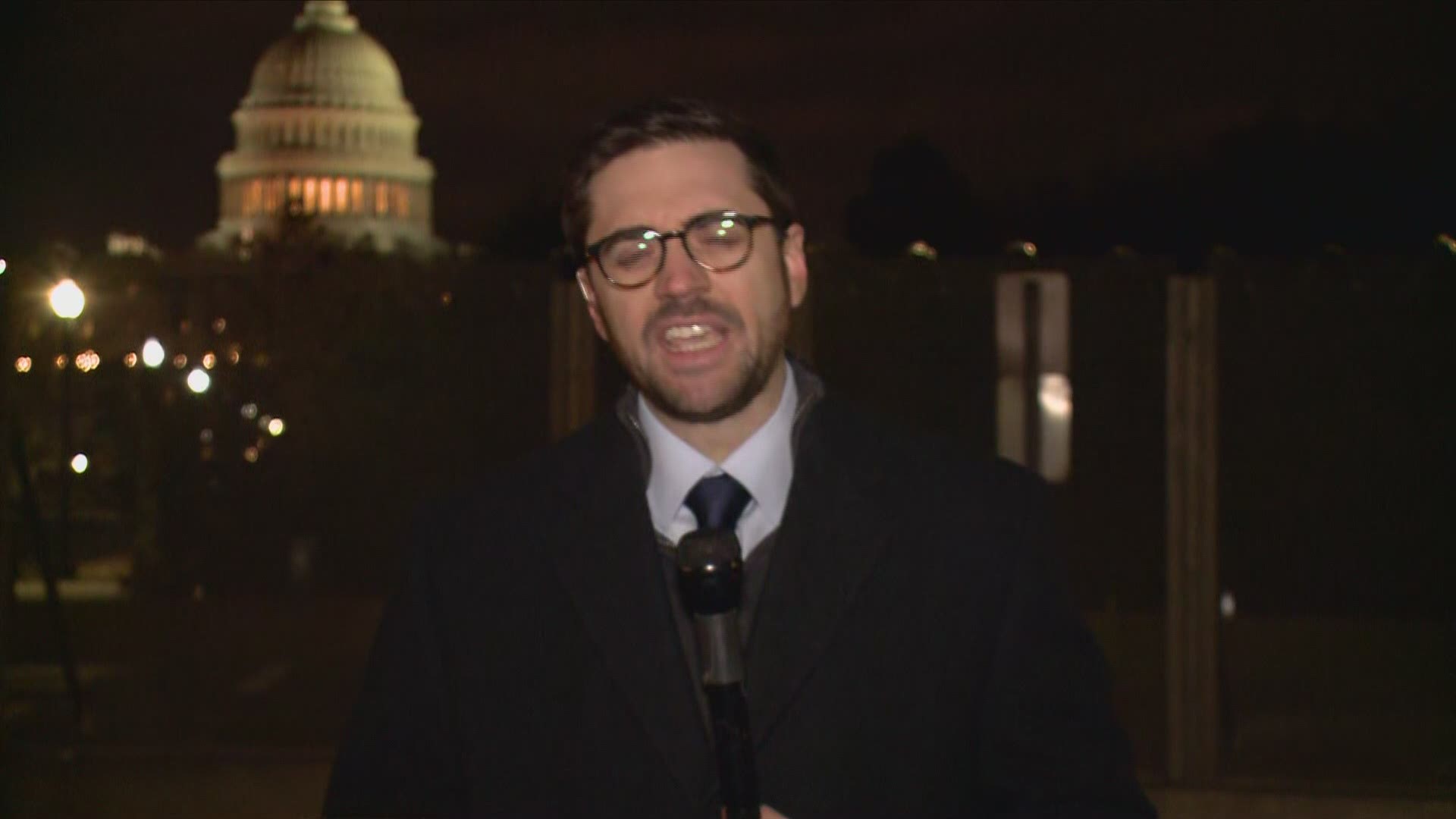WASHINGTON — There's a lot of misinformation on the internet. That's why the Verify team exists. We take your questions to the experts and bring you the facts.
With former President Donald Trump's second impeachment trial starting on February 9th, many have been wondering about a certain term that keeps popping up in the process: impeachment managers.
Who are they, and what role do they really play in the trial process?
So let's Verify.
QUESTION:
Who are the House impeachment managers who delivered the articles to the Senate, and what is their role in the impeachment trial?
SOURCES:
- John Fortier, Constitutional Law Expert
- Frank Bowman, Law Professor at University of Missouri
PROCESS:
Impeachment trials are different than usual criminal trials, even though they share a lot of the same vocabulary.
Frank Bowman, a law professor at the University of Missouri, compared the managers to prosecutors, saying "If this were a criminal case, we'd call them prosecutors."
According to Bowman, the name and process behind calling them impeachment managers was inherited from our British forebearers.
"Managers were chosen from the House of Commons to present impeachment cases to the House of Lords," he continued.
Who selects impeachment managers?
John Fortier with the American Enterprise Institute said the impeachment managers are representatives selected by the House of Representatives, who typically come from the House Judiciary Committee.
"The Speaker effectively chooses the House impeachment managers, and the House passes a resolution to appoint the managers," Fortier explained.
Who are the impeachment managers for Trump's second impeachment trial?
The impeachment managers for this trial, as stated in the House trial memorandum, are:
- Rep. Jamie Raskin, (D-Maryland) - Lead Manager
- Rep. Diana DeGette, (D-Colorado)
- Rep. David Cicilline, (D-Rhode Island)
- Rep. Joaquin Castro, (D-Texas)
- Rep. Eric Swalwell, (D-California)
- Rep. Ted Lieu, (D-California)
- Rep. Stacey Plaskett, (D-Virgin Islands)
- Rep. Madeleine Dean, (D-Pennsylvania)
- Rep. Joe Neguse, (D-Colorado)
Fortier agreed with Bowman about the trial process, describing impeachment managers as prosecutors in the case.
What do impeachment managers do?
Like prosecutors, impeachment managers will have a chance to make an opening statement. Those statements will focus more on why they think former President Donald Trump should be convicted. The managers can also respond to arguments presented by the president's legal team and also respond to questions posed by senators.
"Impeachment managers will have an opportunity near the start of the trial to present their case for the impeachment articles," Fortier explained. "President Trump's legal team will have time for a response, and senators will have time to question both sides," he explained.
What time does Trump's second impeachment trial start?
Trump's second impeachment trial starts at noon EST on Tuesday, February 9, with hours of debate to start. There's a couple of different layers to the impeachment trial process:
- Tuesday, Feb. 9: Senate vote on constitutionality. First, the Senate will vote on whether they have the jurisdiction to actually hold a former president's trial. This will happen after four hours of argument on the Senate floor, where each senator can state their reasoning.
- Wednesday/ Thursday, Feb. 10 and 11th: Prosecution opening arguments begin. Impeachment managers from the House of Representatives will each make their case against Trump. These cases can take no longer than 16 hours of argument total, which is likely to be spread out over two days.
- Friday, Feb. 12, potentially Sunday: Defensive opening arguments begin. This is where Trump's legal team can state their ground, using the same amount of time as the prosecution to make their opening arguments. If the arguments are still going after sundown on Friday, the trial will resume Sunday (Saturday is off-limits to honor the Sabbath.)
- Sunday/ Monday, February 15: Senators ask their own questions. These questions aren't limited to one side or the other -- they can ask them to the House impeachment managers' side, or to Trump's legal team. It's an up to four-hour chance for Senators to get more information and clear up any questions of their own that they might not have been able to ask.
- Week of February 15: Debating over witnesses. The House impeachment managers can call witnesses, which depending on how many and if they decide to, can slow down the process. The Senate would need to approve and depose witnesses before they can actually testify.
- If no witnesses called, a potential conclusion next week: The last step to the process would be for the Senate to move to their final vote.


